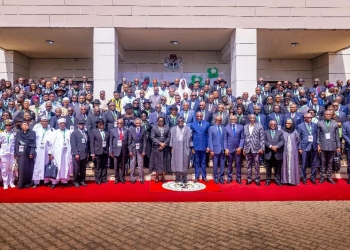International Civil Society Organisations including HEDA Resource Centre, Nigeria; ReCommon, Italy; Hawkmoth, The Netherlands; and Corner House Research, United Kingdom, have jointly submitted a comprehensive report to the Public Hearing on Environmental Damages in Oil Producing Communities. Hosted by the House of Representatives’ Joint Committee on Environment, Petroleum Resources Upstream, Petroleum Resources Downstream, and Climate Change. This submission underscores urgent concerns regarding the environmental crisis in the Niger Delta.
In the meticulously crafted ten-page report, signed by Olanrewaju Suraju for HEDA Resource Centre, Antonio Tricarico of ReCommon, Simon Taylor of Hawkmoth, and Nicholas Hildyard of Corner House Research, attention of the Parliament was drawn to the grave issue of environmental genocide inflicted upon communities of the Niger Delta due to relentless oil and gas exploitation. The report scrutinized the role of industry giants Shell and Eni in perpetuating environmental degradation and raised profound apprehensions regarding their proposed divestments from onshore oil licenses.
The coalition emphasized that the devastation wrought by oil companies in the Niger Delta demands immediate, wholistic, participatory, and decisive actions. “The international oil companies should not be permitted to evade their obligations to remediate the legacy of pollution, regardless of its origins,” the statement asserted. Furthermore, the coalition urges the Joint Committee to recommend empowering relevant agencies like the NUPRC to enforce regulations governing divestment and accountability by the oil operating companies.
Central to the coalition’s demands is the insistence that no divestments should proceed without comprehensive consultation with local communities. “Environmental damages must be thoroughly assessed, and funds must be secured in escrow to ensure the full coverage of cleanup costs,” the statement underscored. Additionally, the coalition calls for the establishment of legally-enforceable measures to remediate polluted areas and companies fidelity to decarbonization plans.
To oversee and ensure compliance with these critical actions, the coalition advocated for the establishment of a parliamentary monitoring committee. “This committee would serve to oversee and uphold the cleanup process while ensuring the accountability of all stakeholders,” the statement added.
Finally, the civil society organizations reaffirmed their commitment to providing further information and offering their insights to support the parliamentary oversight and investigative efforts.











